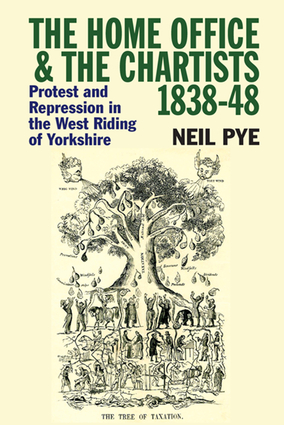Overview
This book tells the story of how the Home Office suppression of Chartist protest in West Riding led to development of the modern British State. Chartism was a powerful community force, staging protests across the West Riding and attracting much support, especially from the dispossessed, the disenfranchised, and Irish immigrants. The Home Office led the state’s response, using new resources—railways, the press, and the electric telegraph—and mobilized coercion from army and police forces. In 1842 and in following years, Chartist unrest was suppressed largely because the Home Office managed to take control. Arrests were made and extreme measures adopted to secure the region from further violence, effectively driving the movement into decline; the State had too much coercive power in reserve, forcing mass political protest to collapse and an age of stability to follow.Author Biography
Neil Pye is a historical researcher from the University of Huddersfield and has lectured at the Open University. He is a member of the Labour Party and currently serves as a borough councillor in West Lancashire.

